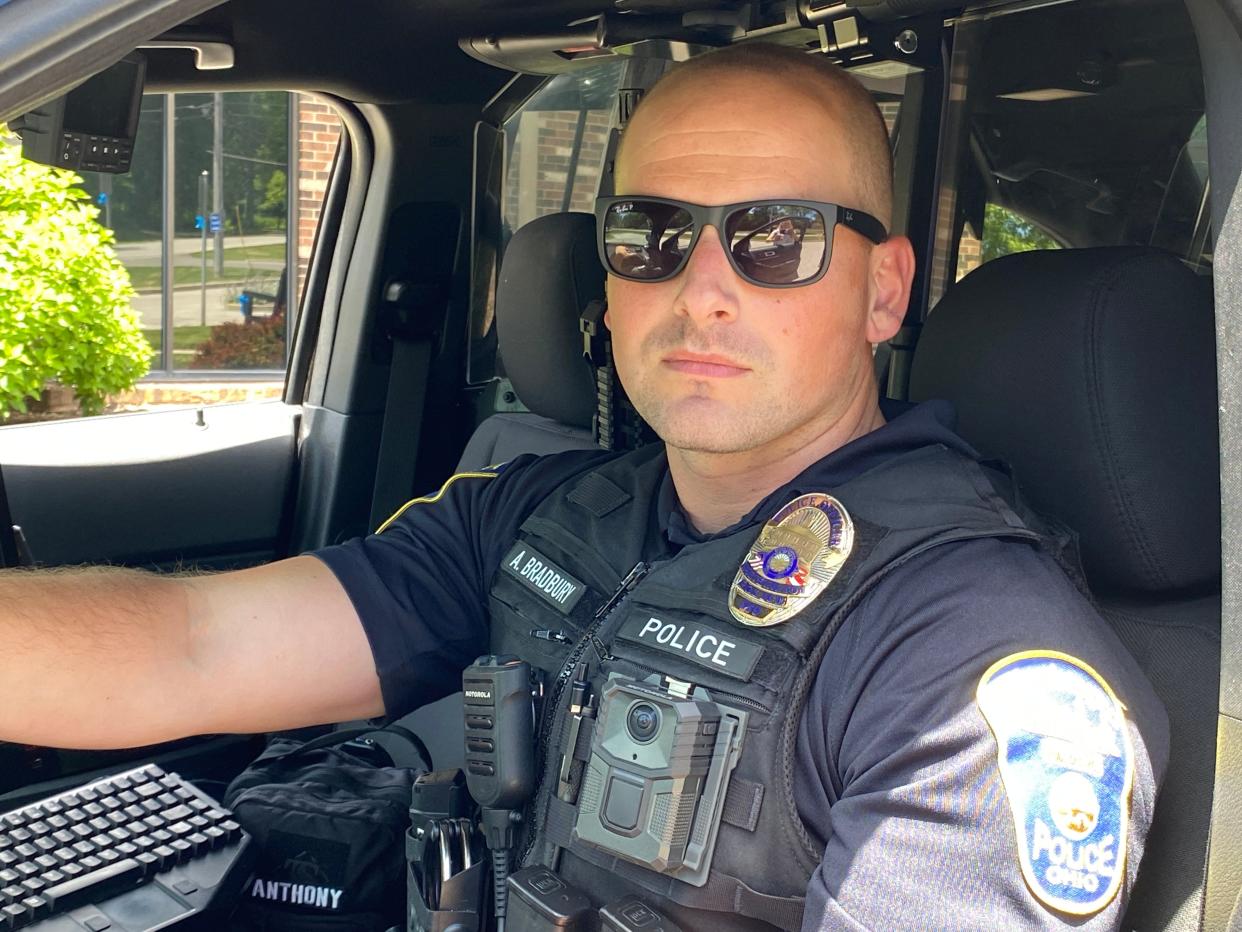Worthington: Police officers being outfitted with body-worn cameras

Nearly two years after City Council first proposed an appropriation to buy them, all officers in the Worthington Division of Police will wear body-worn cameras, the city of Worthington has announced.
The city police department is outfitting its 32 full-time police officers with Motorola WatchGuard body cameras starting the week of July 5, according to a news release from the city. Another six cameras are to be utilized for reserve officers or when needed for replacement, for a total of 38 cameras.
All officers have been trained in their use, according to the release.
“The implementation of body-worn cameras is one of many improvements we’ve made in the past year, including full building renovations, upgraded records-management systems, further implementation of new hybrid vehicles in our police fleet, approval of a collective-bargaining agreement and continued hiring and promotional processes,” police Chief Robert Ware said in a prepared statement. “We’re excited that our division is able to roll out body cameras and has been able to accomplish so much in this past year.”
Officers are required to activate their cameras when they expect to take an enforcement or investigative action during their shift.
The cameras also are capable of passively recording at intervals of 15, 30 or 45 seconds, or one or two minutes prior to an officer-activated recording, Ware said.
The department opted to set the cameras' default to passively record for two minutes, he said.
Anne Brown, the city's communications director, described the basic principle of passive recording.
"When a camera is powered on, it will continuously record passively, or in the background, similar to a surveillance camera for a home or businesses," she said. "If the camera is not activated, then it will just record over itself after a period of time. When the camera is activated, it will preserve the footage and create a file."
Passively recorded footage can be set for intervals, or "pre-event options," prior to an officer-activated recording, set to record indefinitely or turned off according to the camera specifications, Ware said.
If a camera is set to passively record two minutes of footage, for example, this means the department would be able to recover recorded footage two minutes before an officer activated the camera, Ware has said.
The department had planned to implement body cameras sometime in “early 2022.”
Brown said the implementation was delayed due to a combination of supply-chain issues, the need to update the department’s records-management systems and limited staff capacity due to ongoing projects and initiatives.
“Although the implementation of the body-worn cameras took more time than first estimated, a lot is happening in the Division of Police, and we are pleased so many of these priorities are being accomplished,” Brown said in a prepared statement. “All of these programs and initiatives are bringing great improvements to facilities and services and we are excited about all of the activity taking place to improve our efficiency and effectiveness.”
The city funded the cameras with a $135,000 appropriation approved in May 2021.
sborgna@thisweeknews.com
@ThisWeekSteve
This article originally appeared on ThisWeek: Worthington Division of Police officers get body-worn cameras

